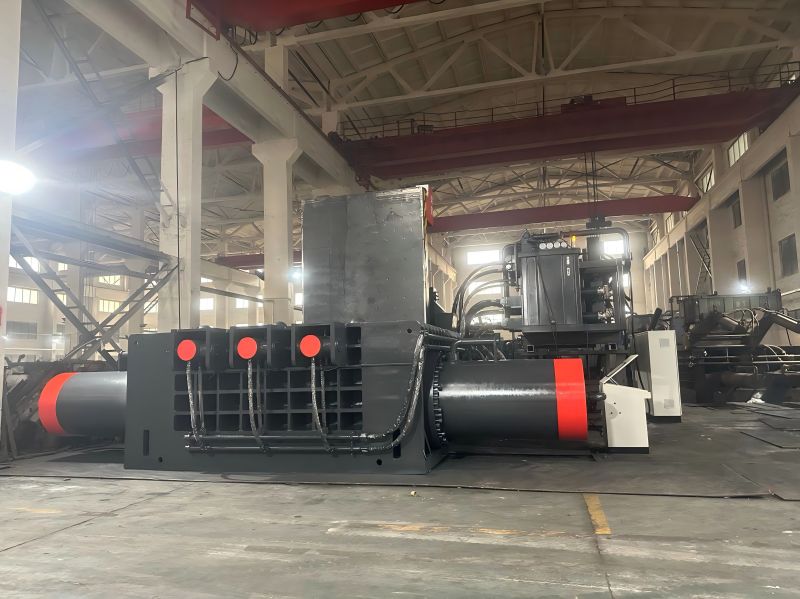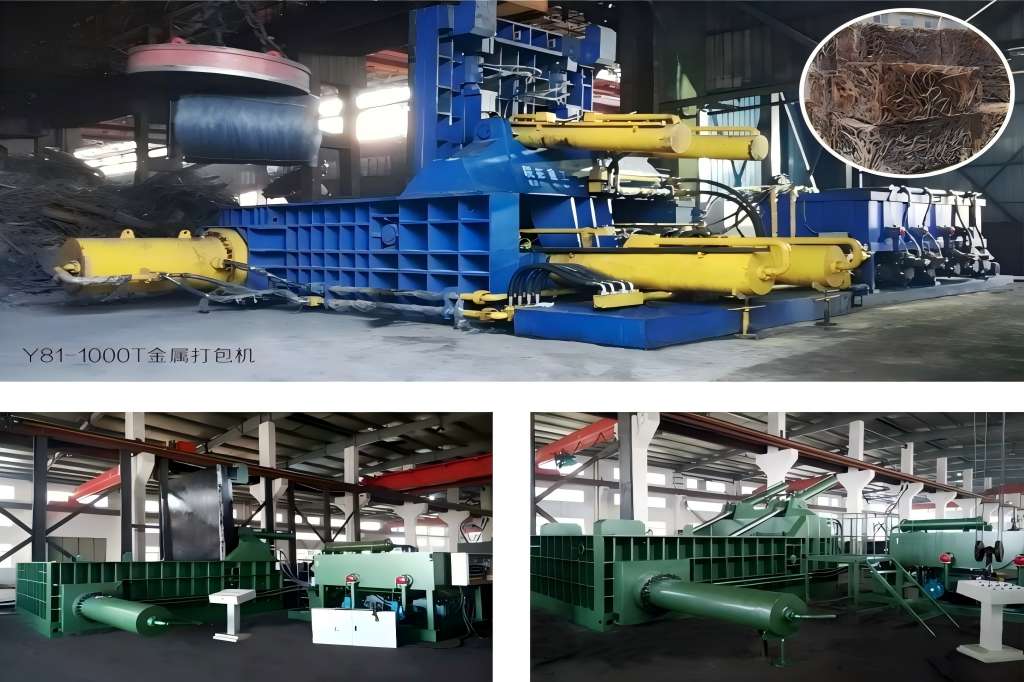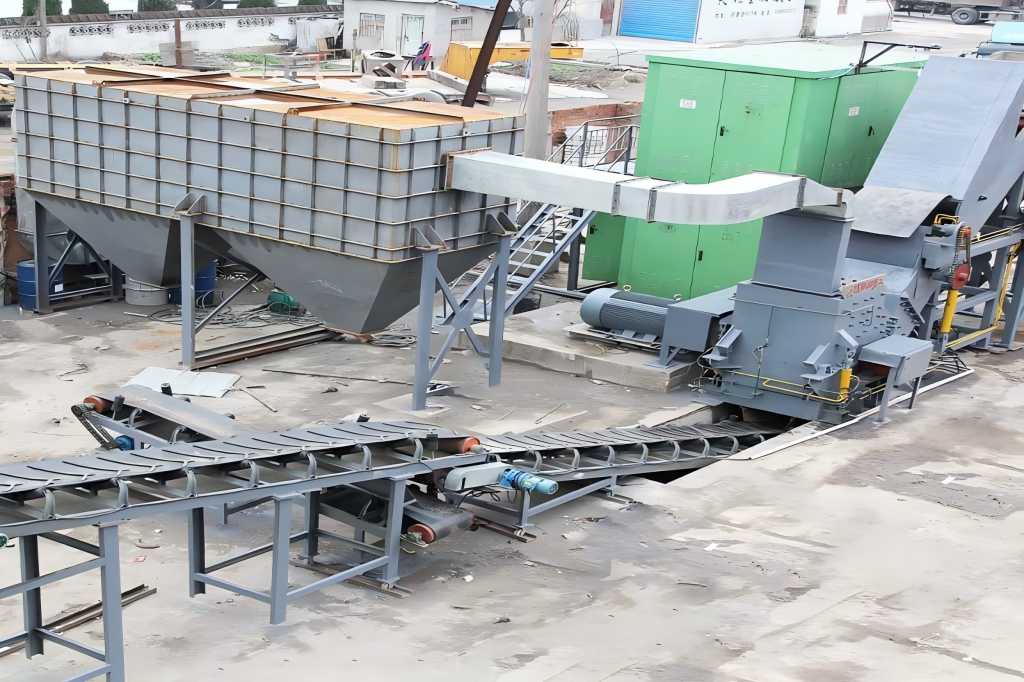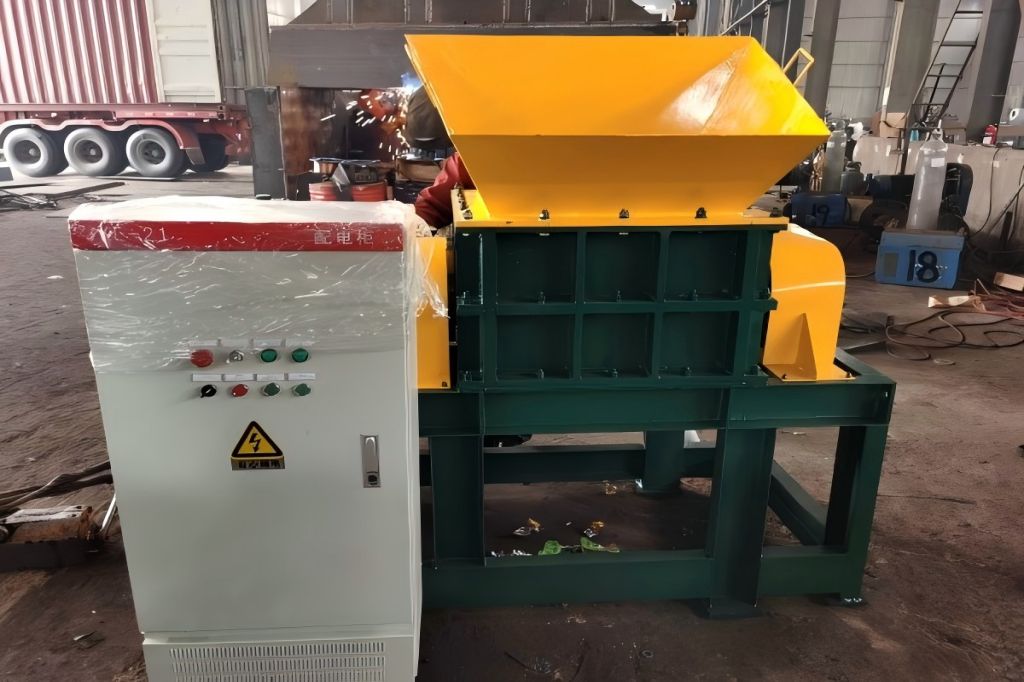Recycling scrap metal is essential for resource conservation and waste reduction. Scrap metal balers make handling metal scrap easier by compressing it into little bales. Selecting the appropriate baler is crucial for productivity, regardless of the size of your business.
To assist you in selecting the ideal baler for your company, this article contrasts heavy-duty and compact balers, emphasizing their characteristics, benefits, and applications.
Understanding the Role of Scrap Metal Balers
Before diving into the differences between compact and heavy-duty balers, it’s important to understand the role these machines play in scrap metal recycling.
By reducing the amount of metal waste, balers facilitate handling, storage, and transportation. They also streamline the sorting and processing of scrap, increasing overall productivity. Balers come in a variety of sizes and configurations, which are typically divided into two categories: compact and heavy-duty.
What is a Compact Scrap Metal Baler?
A compact scrap metal baler is designed to handle smaller volumes of scrap metal. These machines are perfect for companies with limited space or moderate material processing needs since they are more compact, lightweight, and adaptable. They are well-suited for businesses that deal with lighter scrap metals such as aluminum cans, copper wire, and other non-ferrous materials.
Key Features of Compact Scrap Metal Balers:
- Space-Efficient: Compact balers have a small footprint, allowing them to be used in facilities with limited space.
- Lower Throughput: They are designed to process smaller volumes of scrap metal, making them ideal for small to medium-sized businesses.
- Quick Cycle Times: Compact balers typically have faster cycle times, enabling businesses to produce bales quickly and efficiently.
- Cost-effective: Both the original investment and ongoing maintenance expenses for these balers are often lower.
Compact scrap metal balers are perfect for businesses that need to handle smaller quantities of material and operate in tighter spaces. They are also beneficial for facilities where high-speed operations are not a necessity.
What is a Heavy-Duty Scrap Metal Baler?
In contrast, heavy-duty scrap metal balers are designed for large-scale operations that process high volumes of scrap metal. These machines are more robust, with higher capacity and the ability to handle tougher, denser materials like steel and iron. Heavy-duty balers are typically found in large recycling plants, metal manufacturers, and facilities with significant metal waste processing needs.
Key Features of Heavy-Duty Scrap Metal Balers:
- Large Capacity: Designed to manage substantial amounts of scrap metal, heavy-duty balers are perfect for high-output processes. Versatile: These balers are able to process more ferrous and non-ferrous metals in greater numbers.
- Durable Construction: Heavy-duty balers are designed with more powerful motors, hydraulic systems, and stronger frames to withstand the demands of high-volume processing.
- Slower Cycle Times: While they can process more material, heavy-duty balers often take longer to complete a cycle compared to compact balers.
These balers are built for businesses that need to process large amounts of scrap metal on a daily basis and require a high level of reliability and efficiency in their operations.

Comparing Compact and Heavy-Duty Scrap Metal Balers
To help you make a more informed decision, we’ve compiled a table comparing the key features of compact and heavy-duty scrap metal balers.
| Feature | Compact Scrap Metal Baler | Heavy-Duty Scrap Metal Baler |
| Capacity | Low to moderate | High |
| Footprint | Small, space-efficient | Larger, takes up more space |
| Cycle Time | Faster, efficient for smaller loads | Slower due to larger material handling |
| Material Compatibility | Non-ferrous metals, lighter scraps | Ferrous and non-ferrous metals |
| Investment Cost | Reduced startup and ongoing expenses | Greater startup costs and ongoing expenses |
| Maintenance Needs | Low to moderate | Higher, requires regular maintenance |
| Ideal for | Small to medium-sized operations, light scrap | Large-scale operations, heavy-duty scrap |
Key Considerations for Choosing the Right Baler
When deciding between a compact and heavy-duty scrap metal baler, there are several factors to consider:
1. Volume of Scrap Metal Processed
The first and most obvious factor is the volume of scrap metal you need to process. Compact balers are perfect for operations that handle small to moderate amounts of metal waste.
They are ideal for businesses with lower scrap metal volumes or those in the early stages of recycling. On the other hand, heavy-duty balers are designed for large-scale operations with high metal throughput, such as large recycling plants or industrial metal manufacturers.
2. Type of Scrap Metal
If you are primarily dealing with lighter, non-ferrous metals, such as aluminum, copper, or brass, a compact baler may be all you need. Compact balers provide a rapid and effective solution because they are made to handle these materials with ease.
However, if your operation involves heavier, denser metals like steel, iron, or mixed metal types, a heavy-duty baler is the better choice. These machines are specifically built to handle tougher materials and can operate continuously without risking damage.
3. Space and Facility Constraints
If your facility has limited space, a compact baler will be the most practical option. Its smaller footprint makes it ideal for businesses that have space constraints or operate in a smaller facility. Because of their size, heavy-duty balers need more floor area and are best suited for facilities that can handle them.
4. Budget and Investment
Compact scrap metal balers are more affordable than heavy-duty balers, both in terms of initial investment and ongoing maintenance costs. A tiny baler is an affordable option for startups or start-up companies with limited resources. Heavy-duty balers come with a higher price tag, both for purchase and maintenance.
However, if your operation requires the processing of large amounts of metal, the higher cost may be justified by increased efficiency and capacity.
5. Long-Term Efficiency and ROI
Although the initial investment in a compact baler may be lower, businesses that process a higher volume of scrap metal may find that a heavy-duty baler offers better long-term efficiency.
Heavy-duty balers are designed for heavy, continuous use, meaning they can handle the demands of high-volume operations without experiencing significant wear and tear. Businesses that frequently need to process significant amounts of scrap metal may eventually get higher returns on their investment as a result.
Compact vs. Heavy-Duty Scrap Metal Baler Applications
Compact Scrap Metal Balers are typically used in:
- Small scrap metal recycling operations
- Aluminum can recycling facilities
- Small manufacturing units producing metal waste
- Operations where space is limited
Heavy-Duty Scrap Metal Balers are ideal for:
- Large-scale recycling plants
- Steel and iron processing plants
- Operations handling industrial metal waste
- Facilities that require high throughput and efficiency
Conclusion
The needs of your company will determine which scrap metal baler is best for you. Compact balers are ideal for small to medium operations handling lighter, non-ferrous metals. They are space-efficient, fast, and cost-effective. Heavy-duty balers suit large-scale operations needing to process dense metals at high volumes, offering durability and high throughput.
Consider your needs, space, and budget to select the right baler for efficiency and long-term success in recycling.



